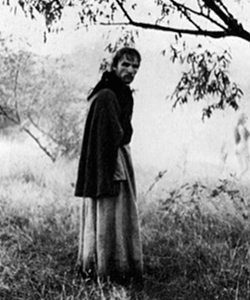Worst Films Of The Year So Far
1. Drive Angry
Drive Angry is just as ridiculous as its synopsis sounds and by no means is that a good thing. Clearly the film was going for the grindhouse feel, but it’s neither a tolerable homage to the old grindhouse classics or anything near the same territory of Robert Rodriguez’s Planet Terror or Quentin Tarantino’s Death Proof. The film’s excessive use of violence and sex is the same content that is going to either turn viewers on to the film or turn them off of it. Personally, it was a turn off as watching Nicolas Cage in a violent gun battle while at the same time having intercourse with some blonde he encountered at the bar earlier in the night doesn’t scream quality cinema to me and it shouldn’t to you either. With Drive Angry, Cage further demostrates that his career is in a free fall, but the only benefit that can possible come from a film like this is that really there is no where to go, but up.
The film has no real climax and no sense of urgency, in fact for a super hero movie it really is quite dull, and at times excruciatingly painful. The film favours special effects over script; cool in-cohesive action over story; and lame one liners over character growth. Further proof that expensive special effects can’t make a movie, but lack of an original screenplay and an assortment of lousy uninspired performances can certainly break one.
It’s a poorly photographed and shoddily produced film that ends up being rather dull in nature, as unlike some of Cage’s most recent disasters (with the primary focus here being on The Wicker Man) Season of the Witch isn’t even able to provide moments of unintentional hilarity because the film simply takes itself just far too seriously. Now a film can be economically made without giving away its financial shortcomings however Season of the Witch, if you can really call forty million dollars economic, is a film that seems unaware of its limitations with its video game special effects and restricted set pieces that only take us further away from its underlying story, which maybe its intention because its story itself is limited and if there is one thing an economically made production shouldn’t be lacking in, it’s story.
To make matters worse, in between the film’s mundane action sequences, Battle: Los Angeles fires every single war movie cliché in the books at us and when the chamber is empty, it reloads and fires again. It’s inconceivable to believe that a film with such a potentially entertaining premise could feel so tedious, but sadly it’s true. Not even the perpetual violence and explosions, the shaky-cam aesthetic, or the conviction in Eckhart’s constant screams had enough substance to make us feel the intensity of combat. The planet was under attack; mankind as we know it was on the brink of annihilation, yet the gravity of the situation was unable to be explicitly articulated onscreen.
While the original score composed for the film leaves much to be desired, the film’s music selection of popular tracks from The Kings of Leon, XX, and Adele were an effective touch and probably the strongest aspect of the film. But, when a film’s choice of music is its strong suit, there’s a problem and I Am Number Four is most definitely evidence of this. The film begins with a bang and its open-end conclusion, which reeks of impending sequels leaves us strangely wanting more; but both are surely not enough to make us forget about the lousy moments that came in between.
-
Rapbiv
-
http://twitter.com/NextProjection Christopher Misch
-
http://twitter.com/whalen_z Zachary Whalen
-
http://twitter.com/ty_landis Ty Landis
-
http://twitter.com/NextProjection Christopher Misch
-
http://twitter.com/NextProjection Christopher Misch
-
http://eutextilenews.blogspot.com textile reports











 Review: The Greatest Movie Ever Sold (2011)
Review: The Greatest Movie Ever Sold (2011) Review: Space Cowboys (2000)
Review: Space Cowboys (2000) Review: The Yellow Sea (2010)
Review: The Yellow Sea (2010) Review: The Texas Chainsaw Massacre (1974)
Review: The Texas Chainsaw Massacre (1974) Review: True Crime (1999)
Review: True Crime (1999)



